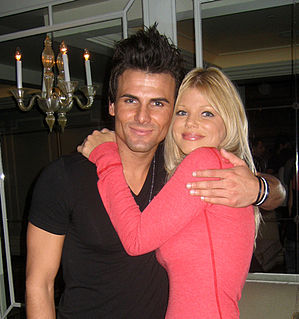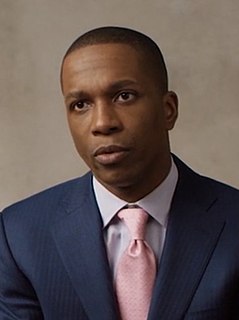A Quote by Jeremy Jackson
It's not about the fish; it's not about the pollution; it's not about the climate change. It's about us and our greed and our need for growth and our inability to imagine a world that is different from the selfish world we live in today.
Related Quotes
So we are left with a stark choice: allow climate disruption to change everything about our world, or change pretty much everything about our economy to avoid that fate. But we need to be very clear: because of our decades of collective denial, no gradual, incremental options are now available to us.
Our environment, the world in which we live and work, is a mirror of our attitude and expectations. If we feel that our environment could stand some improvement, we can bring about that change for the better by improving our attitude. The world plays no favorites. It's impersonal. It doesn't care who succeeds and who fails. Nor does it care if we change. Our attitude toward life doesn't affect the world and the people in it nearly as much as it affects us.
Some might say that looking inside of ourselves for spiritual truths is egocentric and selfish, and that egolessness and selflessness lie in working for others in the world. But until we find our inner truth, our work in the world will always revolve around our 'selves'. As long as we think about the world in terms of 'self' and 'others', our actions will be selfish. Our 'self' follows us wherever we go, so positive results will be limited.
It's not just global warming, it's not just a loss of biodiversity, it's not just the pollution of our oceans and the clearing of our rainforests and all these complicated systems, The [11th Hour] movie talks about the world economy, it talks about politics, it talks about personal transformation and environmental consciousness that we need to have in this generation to implement a lot of these changes that need to occur.
Despite all the doom and gloom that constantly assaults our senses, there is a way for us to ransom our lives and reclaim our futures: it consists in turning away from the world to recognize what in life makes us truly happy. For each of us, what that is will be different. But once we obtain this inner knowledge, we will possess the ability to transform our outer world. "You can live a lifetime and, at the end of it, know more about other people than you know about yourself," the pilot and writer Beryl Markham reminds us. We cannot let this continue to occur.
I'm not saying I'm going to rule the world, I'm going to change the world. But I guarantee I will spark the brain that will change the world. And that's our job. It's to spark somebody else watching us. We might not be the one, but let's not be selfish. And because we['re] not going to change the world, not talk about how we should change it. I don't know how to change it. But I know if I keep talking about how dirty it is out here, somebody's going to clean it up!
We all like to think the world ends when we do. The truth is our acquaintances, our friends, and our loved ones all live on, and through them, so do we. It's not about what you had, but what you gave. It's not about how you looked, but how you lived. And it's not just about being remembered. It's about giving people a good reason to remember you.
Being told about the effects of climate change is an appeal to our reason and to our desire to bring about change. But to see that Africans are the hardest hit by climate change, even though they generate almost no greenhouse gas, is a glaring injustice, which also triggers anger and outrage over those who seek to ignore it.
To disguise nothing, to conceal nothing, to write about those things that are closest to our pain, our happiness; to write about our sexual clumsiness, the agonies of Tantalus, the depth of our discouragement-what we glimpse in our dreams-our despair. To write about the foolish agonies of anxiety, the refreshment of our strength when these are ended; to write about our painful search for self, jeopardized by a stranger in the post office, a half-seen face in a train window, to write about the continents and populations of our dreams, about love and death, good and evil, the end of the world.


































